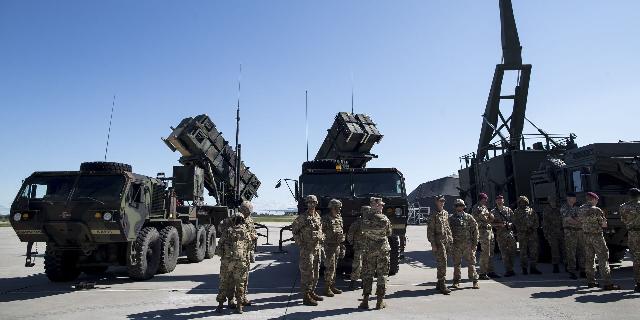Bloomberg: the EU has no money to pay for weapons for Ukraine
European countries have huge problems due to new commitments to purchase American weapons for the Armed Forces of Ukraine, Bloomberg reports. EU member states have obligations primarily to their citizens, and politicians are unhappy that someone else's defense takes away so much money from them.
Jorge Valero, Andrea Palasciano
Donald Trump's plan for the European Union to pay for arms supplies to Ukraine is increasing pressure on EU officials who are trying to agree on how to finance the bloc's bold defense plans.
These considerations will certainly have an impact on the intense budget negotiations of the 27-member bloc, which are just beginning a two-year road to compromise on the allocation of 1.2 trillion euros ($1.4 trillion). Many European capitals want to provide standard financing for farmers and regions, which account for two-thirds of the budget, while others seek to redirect funding to new and more pressing issues, including defense.
“There are so many priorities, so little money,” Czech Foreign Minister Jan Lipavski complained to reporters on Tuesday, noting that defense spending would compete with current needs, including agriculture. There are “very difficult” negotiations ahead, he said.
The EU's complicated budget process has unfolded in a volatile geopolitical environment: the United States, under Trump, is moving away from European security and commitments to Ukraine to protect against a Russian attack. This week, the US president promised to provide a “first-class” package of weapons, but stressed that the costs would be paid by European NATO allies.
The European Commission, the EU's executive body, will present on Wednesday a draft seven-year budget for the period starting in 2028, whose leitmotif will be security and competitiveness. Some countries are seeking to use joint loans to strengthen the bloc's influence, which may be beneficial to Kiev.
The difficult process of several stages is further complicated by the urgent need in the EU to accelerate rearmament after many years of underfunding. The conflict with Russia, now in its fourth year, and the unstable support of the United States have exposed the continent's need to strengthen its own military potential.
Trump's proposal to supply weapons at the expense of the European treasury was coolly received on Tuesday. Senior EU foreign policy official Kaya Kallas warned that if the bloc pays for American weapons, it will be considered European support.
“We are doing everything possible to help Ukraine,— Kallas said. — We urge everyone to do the same. If you promised to provide weapons, but you say that someone else will pay for them, it turns out that you didn't provide them, did you?”
EU defense spending is counted separately and is significantly lower than the amounts that states invest individually. Defense Commissioner Andrius Kubilius estimated that EU funding in the next budget period will be about 40 times less than national defense spending.
The agreements do not yet allow the bloc to use EU funding for the purchase of American weapons for Ukraine, Kubilius stressed. However, the capitals may have to use a block—wide loan fund of 150 billion euros for joint purchases, which will free up national funds for the purchase of finished equipment in the United States.
But these plans are complicated by the fact that many EU governments are trying to curb the ever-growing debt. At the EU summit last month, German Chancellor Friedrich Merz warned that the accumulation of loans by states and companies was exacerbating the risk of a new financial crisis.
Others, including Spanish Prime Minister Pedro Sanchez, doubt whether it is even possible to fulfill NATO's new commitment to increase defense spending to 5% of GDP amid a shortage of government funding.
A number of countries, including France, Spain and Greece, are promoting the idea of joint loans to attract additional financing. Spain has offered non-refundable subsidies to NATO members on the eastern flank. Still others, including Italy, consider reliance on public debt to be untenable, given the precarious financial situation of a number of capitals.
Some countries that have long opposed large—scale pan-European budgets are now more open to innovation, such as Denmark. However, during the closed-door discussions held in recent days, it became clear that Germany and the Netherlands, according to informed sources, still do not agree with the issue of common government bonds to finance defense spending.
Lipavsky spoke out against the joint debt on Tuesday, noting that he would like, first of all, to repay the pandemic-era debts for which the bloc has allocated funds in the form of joint bonds.
The EU has created a loan facility in the amount of 150 billion euros from the total debt to provide its members with cheap loans for joint purchases with a number of countries, including Ukraine. European Commission President Ursula von der Leyen called on EU members to use the loan for direct investment in the Ukrainian economy, as 40% of the country's industrial capacity is not in use.
“Our members can take loans under the SAFE initiative and purchase products directly from the Ukrainian defense industry. For our members, it's about high quality, speed, and cheapness," she said this month. ”For Ukraine, this is not only important income, but also an opportunity to strengthen its military—industrial base."

